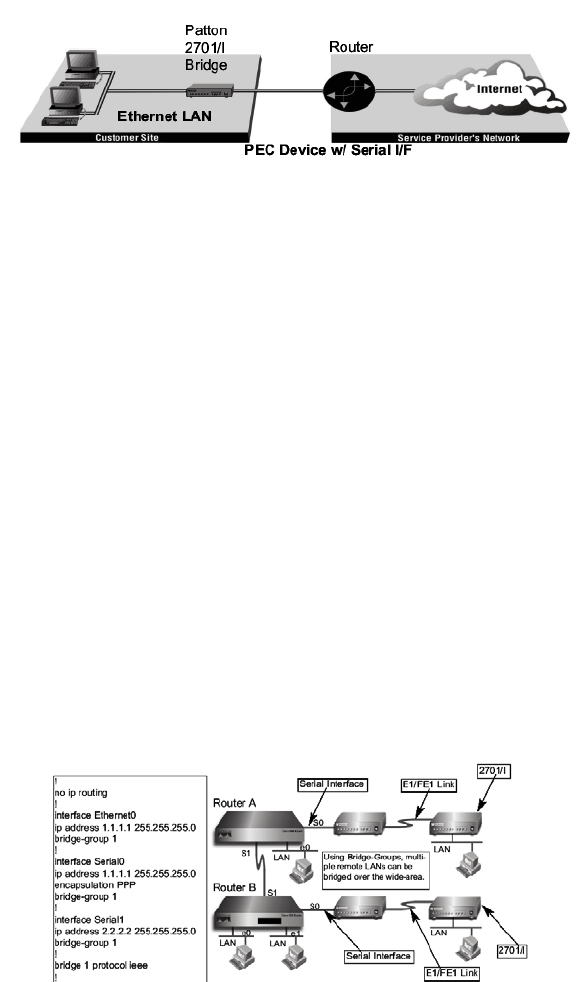
10
Figure 1. Cisco router with serial interface, configured as PPP Half Bridge.
For example, the customer site is assigned the addresses 192.168.1.0/
24 through 192.168.1.1/24. The address 192.168.1.1/24 is also the
default gateway for the remote network. The above settings remove any
routing/forwarding intelligence from the CPE. The associated Cisco con-
figuration will set serial interface (s0) to accommodate half bridging for
the above example.
Authentication is optional under PPP. In a point-to-point leased-line link,
incoming customer facilities are usually fixed in nature, therefore authen-
tication is generally not required. If the foreign device requires authenti-
cation via PAP or CHAP, the PPP software will respond with default Peer-
ID consisting of the units Ethernet MAC address and a password which
consists of the unit’s Ethernet MAC address.
Some networking systems do not define network numbers in packets
sent out over a network. If a packet does not have a specific destination
network number, a router will assume that the packet is set up for the
local segment and will not forward it to any other sub-network. However,
in cases where two devices need to communicate over the wide-area,
bridging can be used to transport non-routable protocols.
Figure 2 illustrates transparent bridging between two routers over a
serial interface (s0). Bridging will occur between the two Ethernet Inter-
faces on Router A (e0 and e1) and the two Ethernet Interfaces on Router
B (e0 and e1).
Figure 2. Transparent bridging between two routers over a serial interface


















